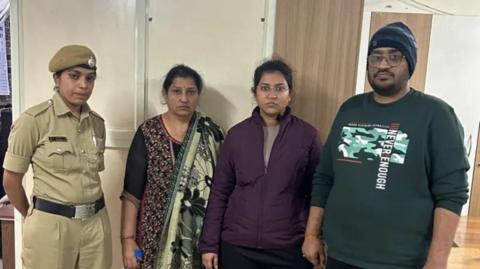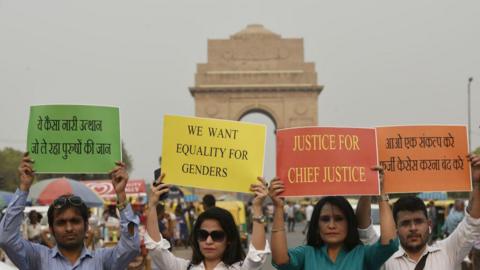On the night of 9 December, a 34-year-old Indian man killed himself. Next to his body was a placard reading "justice is due".
Atul Subhash left a detailed 24-page suicide note and an 81-minute video in which he blamed the trouble in his marriage and divorce proceedings.
The letter and the video, which contain distressing details about his life, have gone viral on social media and caused outrage.
The software engineer from the southern city of Bengaluru accused his estranged wife Nikita Singhania, her mother and brother of sustained harassment and torture – accusations they denied. The three were arrested a few days later and a court has remanded them for 14 days.
News of Subhash's tragic death has also galvanised men's rights activists and started a wider debate around India's tough dowry law which was designed to protect women from harassment and even murder. Singhania had accused Subhash and his family of harassing her for dowry.
Many argue that with cases of divorce steadily rising, the law is now being misused by women to harass their husbands, even forcing them to kill themselves. India's top court has also weighed in, with one judge describing it as "legal terrorism" that was "intended to be used as a shield and not as an assassin's weapon".
Women's activists, however, point out that demands for large dowry payments from husbands' families still continues to kill thousands of women every year.

